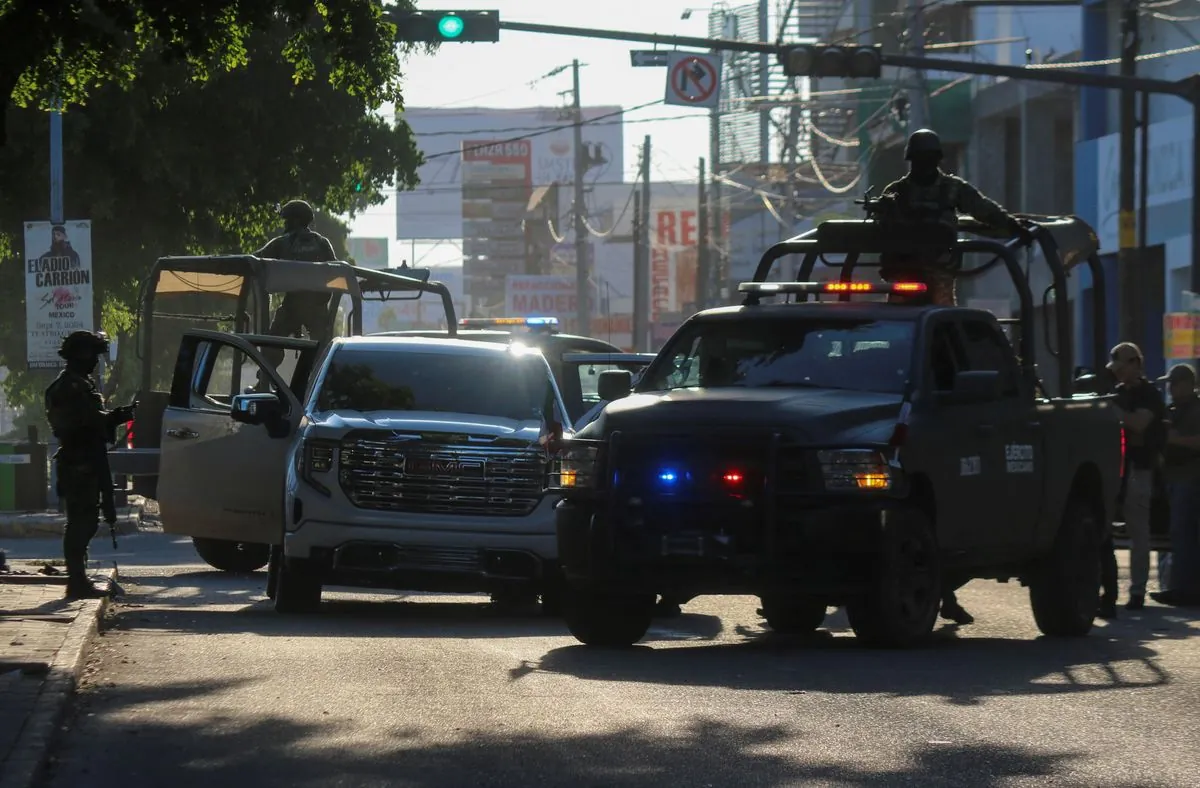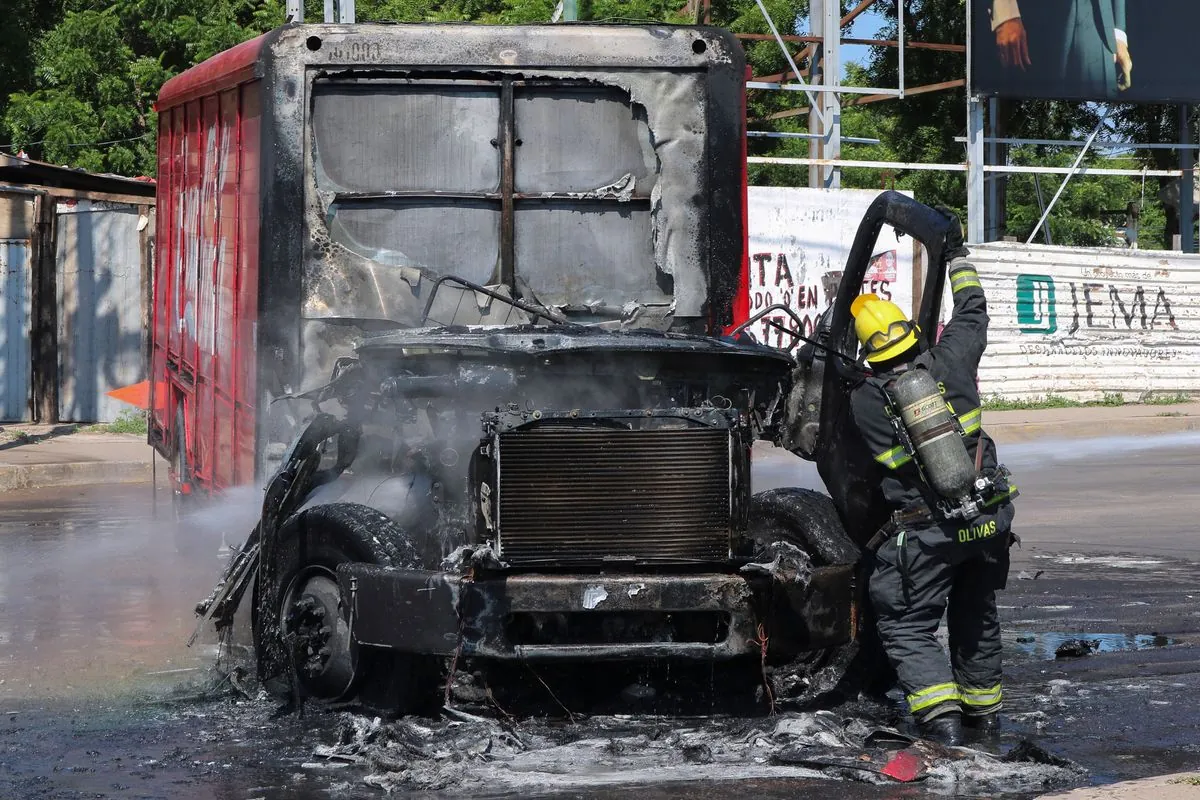Sinaloa Cartel Conflict Escalates: 30 Dead in Two-Week Clash
Violent clashes between Sinaloa cartel factions have left 30 dead in Mexico's Sinaloa state. The conflict, sparked by leadership changes, has paralyzed the capital Culiacan despite military intervention.

In the past two weeks, Sinaloa, a state in northwestern Mexico known for its beaches and agricultural production, has been gripped by a surge of violence. At least 30 individuals, including two military personnel, have lost their lives in clashes between rival factions of the Sinaloa cartel, one of the oldest and most powerful drug trafficking organizations in Mexico.
The conflict erupted on September 9, 2024, following significant changes in the cartel's leadership structure. This upheaval was precipitated by events on July 25, 2024, when Joaquín Guzmán López, son of former cartel leader Joaquín "El Chapo" Guzmán, and Ismael "El Mayo" Zambada, a long-standing key figure in the organization, landed near El Paso, Texas. Zambada's subsequent arrest has led to a power struggle between the remaining sons of El Chapo, known as "the Chapitos," and Zambada's loyalists.

The violence has severely impacted Culiacán, the capital and largest city of Sinaloa. Schools were suspended last week, businesses closed, and transportation came to a near standstill as residents feared being caught in crossfire. Although classes resumed on September 17, 2024, the city remains in a state of semi-paralysis.
The conflict has showcased the cartels' increasingly sophisticated warfare tactics. Reports indicate the use of roadside bombs or Improvised Explosive Devices (IEDs), trenches, homemade armored vehicles, and even bomb-dropping drones. The use of such advanced weaponry by cartels has been observed since at least 2017, with IEDs becoming more prevalent since 2022.
In response to the escalating situation, the Mexican government has deployed 2,200 members of the armed forces and the National Guard to Sinaloa. The National Guard, created in 2019 as part of President López Obrador's security strategy, forms a crucial component of the reinforcements.
"We, on the contrary, are here to prevent them from having confrontations and the loss of human lives."
Despite the military presence, authorities acknowledge that resolving the conflict ultimately depends on the warring factions ceasing hostilities. The situation has been severe enough to prompt the cancellation of Mexican Independence Day celebrations, typically held on September 16th.
The ongoing violence underscores the challenges faced by Mexico's "hugs not bullets" strategy, implemented by outgoing President López Obrador. This approach aims to address the root causes of crime through social programs, offering job training to youths to prevent their recruitment into cartels. President-elect Claudia Sheinbaum, Mexico's first female president elected in 2024, has indicated she will maintain this security policy.
As the conflict continues, it serves as a stark reminder of the ongoing issues stemming from Mexico's war on drugs, launched in 2006. This prolonged struggle has resulted in over 300,000 deaths as of 2024, highlighting the complex and deeply entrenched nature of cartel-related violence in the country.
The Sinaloa Cartel's influence extends far beyond Mexico's borders, with operations reported in over 50 countries. This international reach, combined with the sophisticated tactics employed in the current conflict, underscores the significant challenges facing both Mexican and international law enforcement agencies in combating drug trafficking organizations.


































